The 10 Best Written Novels of All Time (Pt.2)
11-20
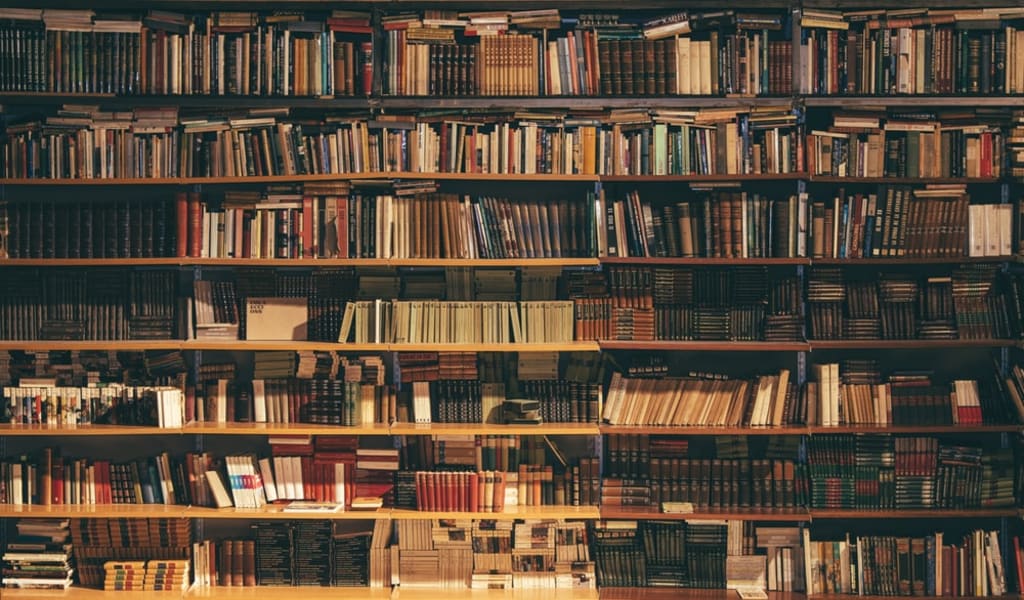
If you haven't read part one and so, do not know what we've covered already - you can find it here.
Now, let's get on with part two. With little introduction, I would like to just go over again the fact that there will be one entry per country, just to make it fair. I am trying to keep my personal opinions in tandem with the general consensus but not to make the list so generic that it is just the same as every other best-written books lists. Be that as it may, I want it to be accessible so that the books aren't too obscure to find and I'm not just rambling on about my own favourite books. Also we won't be covering "other books that could've made the list," purely because I felt that made part one too long to read.
Let's begin the list then:
10. The God of Small Things by Arundhati Roy (India)
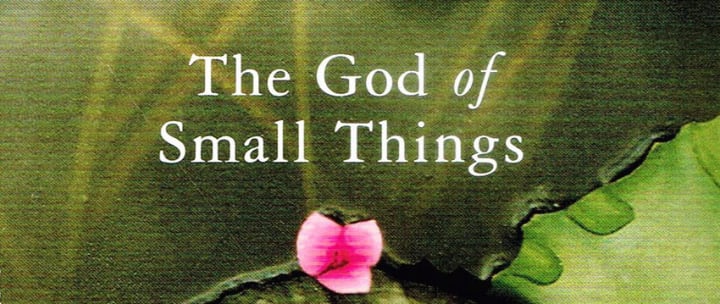
“But when they made love he was offended by her eyes. They behaved as though they belonged to someone else. Someone watching. Looking out of the window at the sea. At a boat in the river. Or a passerby in the mist in a hat. He was exasperated because he didn't know what that look meant. He put it somewhere between indifference and despair. He didn’t know that in some places, like the country that Rahel came from, various kinds of despair competed for primacy. And that personal despair could never be desperate enough. That something happened when personal turmoil dropped by at the wayside shrine of the vast, violent, circling, driving, ridiculous, insane, unfeasible, public turmoil of a nation. That Big God howled like a hot wind, and demanded obeisance. Then Small God (cozy and contained, private and limited) came away cauterized, laughing numbly at his own temerity. Inured by the confirmation of his own inconsequence, he became resilient and truly indifferent. Nothing mattered much. Nothing much mattered. And the less it mattered, the less it mattered. It was never important enough. Because Worse Things had happened. In the country that she came from, poised forever between the terror of war and the horror of peace, Worse Things kept happening. So Small God laughed a hollow laugh, and skipped away cheerfully. Like a rich boy in shorts. He whistled, kicked stones. The source of his brittle elation was the relative smallness of his misfortune. He climbed into people’s eyes and became an exasperating expression.”
The God of Small Things is considered to be one of the greatest books ever written already, but I don't think it gets much appreciation seeing as it is an Indian Novel. I think people don't really read Indian novels as much as they do European/American Novels and that, as a British Indian Girl, upsets me. There are tons of great, magical and hyper-realistic philosophical quotations, extracts, and passages in Indian novels that concern not only our own culture, but our own experiences. To be honest, I think that the European audiences avoid Indian Literature out of their desire not to understand the Indian experience of Life. It is saddening because they'll never really read books like The God of Small Things and really feel them. There's a big difference between reading this book and experiencing it. The God of Small Things will always be one of the greatest experiences in Indian Literature.
9. Hotel Du Lac by Anita Brookner (Switzerland)
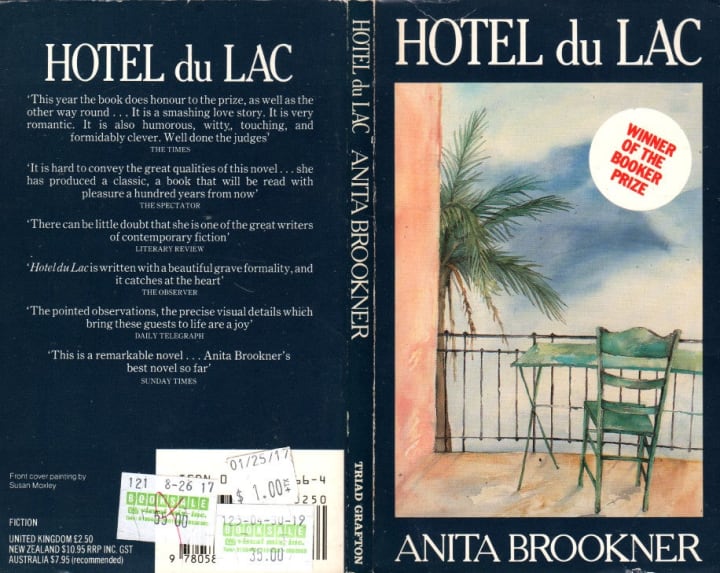
“Edith, in her veal-coloured room in the Hotel du Lac, sat with her hands in her lap, wondering what she was doing there. And then remembered, and trembled. And thought with shame of her small injustices, of her unworthy thoughts towards those excellent women who had befriended her, and to whom she had revealed nothing. I have been too harsh on women, she thought, because I understand them better than I understand men. I know their watchfulness, their patience, their need to advertise themselves as successful. Their need never to admit to a failure. I know all that because I am one of them. I am harsh because I remember Mother and her unkindness, and because I am continually on the alert for more. But women are not all like Mother, and it is really stupid of me to imagine that they are. Edith, Father would have said, think a little. You have made a false equation.”
I think that this novel is a little too romantic and wishy-washy for my personal tastes, but I appreciate some of the language techniques such as extended metaphors and similes, philosophical insights and moments of deep introspection by the characters. The animalistic and the human are also two big themes that are connected in this book and I feel for some reason, that it is under-read. Personally, I didn't enjoy the book because I don't really like the whole romance aspect; I think it fails to be realistic. But, the quotations are simply beautiful, especially when discussing the psychological, introspective side. It becomes more of a realistic and human novel this way. All the other characters should just leave Edith alone.
8. Mister Pip by Lloyd Jones (New Zealand)
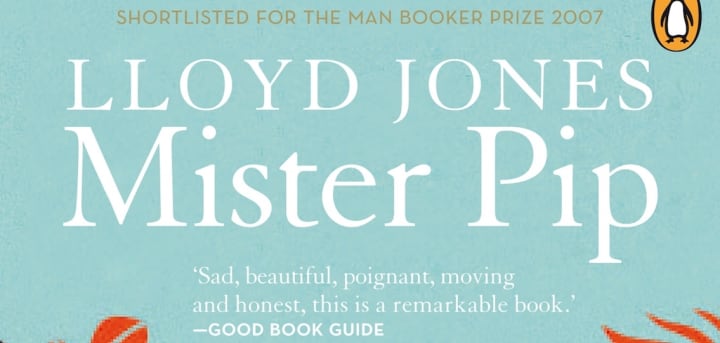
“For six days I didn’t get up except to make a cup of tea, or fry an egg, or lie in the skinny bath gazing at a cracked ceiling. The days punished me with their slowness, piling up the hours on me, spreading their joylessness about the room.
A doctor would have said I was suffering from depression. Everything I have read since suggests this was the case. But when you are in the grip of something like that it doesn’t usefully announce itself. No. what happens is you sit in a dark, dark cave, and you wait. If you are lucky there is a pinprick of light, and if you are especially lucky that pinprick will grow larger and larger, until one day the cave appears to slip behind, and just like that you find yourself in daylight and free. This is how it happened for me.”
This book is heavily underrated for what it is. I was introduced to this book by my cousin who was reading it at school for her A Level English Literature Class. I had never, ever in my life heard of the book or the author, and we both must have been around 17 years old (so it was about six and a half to seven years ago—never ask a lady her age guys, that's rude). I immediately sought it out, but all of them were sold out. I finally bought it on my kindle when I got one for my 18th Birthday. The quotations surrounding the mundane, the human experience in the most harsh of psychological torture and the events that take place in the novel are incredible. It is a raw, but beautifully written book with incredible language use. It wouldn't be a list without this book really.
7. The Beautyful Ones Are Not Yet Born by Ayi Kwei Armah (Ghana)
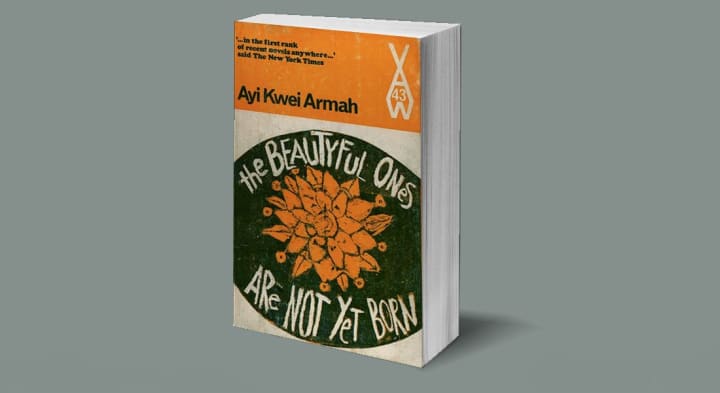
“Teacher, my wife explained to me, step by step, that life was like a lot of roads: long roads, short roads, wide and narrow, steep and level, all sorts of roads. Next, she let me know that human beings were like so many people driving their cars on all these roads. This was the point at which she told me that those who wanted to get far had to learn to drive fast. And then she asked me what name I would give to people who were afraid to drive fast, or to drive at all. I had no name to give her, but she had not finished. Accidents would happen, she told me, but fear of accidents would never keep men from driving, and Joe Koomson had learned to drive.”
This book was something that a friend of mine recommended to me and that was pretty cheap on Amazon when I went to buy it some four or five years' ago. When I began reading it, I was surprised how many people I knew told me that they too, were planning to read that book and so, as always, it got itself passed around. In the quotation above, you get the theme of life and journeying which is a massive theme in the book and I love the numerous quotations of philosophical insight that we get into it. The one above though, is possibly my favourite.
6. The Girl With the Dragon Tattoo by Stieg Larsson (Sweden)
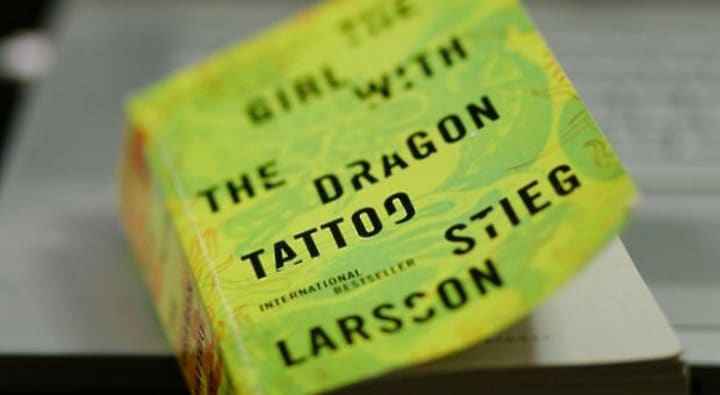
"She hesitated. For two years she had kept as far away from Mikael Blomkvist as she could. And yet he kept sticking to her life like gum on the sole of her shoe, either on the Net or in real life. On the Net it was O.K. There he was no more than electrons and words. In real life, standing on her doorstep, he was still fucking attractive. And he knew her secrets just as she knew all of his. She looked at him for a moment and realized that she now had no feelings for him. At least not those kinds of feelings. He had in fact been a good friend to her over the past year. She trusted him. Maybe. It was troubling that one of the few people she trusted was a man she spent so much time avoiding. Then she made up her mind. It was absurd to pretend that he did not exist. It no longer hurt her to see him. She opened the door wide and let him into her life again.”
One of the greatest spy/action/thriller novels of all time, this is a novel that really gets the term "thriller" correct. This set of novels may be a brilliant series as a whole, but the first novel, the one that started it all off was absolutely incredible. The original trilogy was amazing and this book is one of the many reasons it is. The language is very aggressive in this novel, aggressive in a way that only a few thrillers can pull off and if you notice, after this novel was written, a lot of other thrillers tried to copy its style. It is amazing.
5. Things Fall Apart by Chinua Achebe (Nigeria)
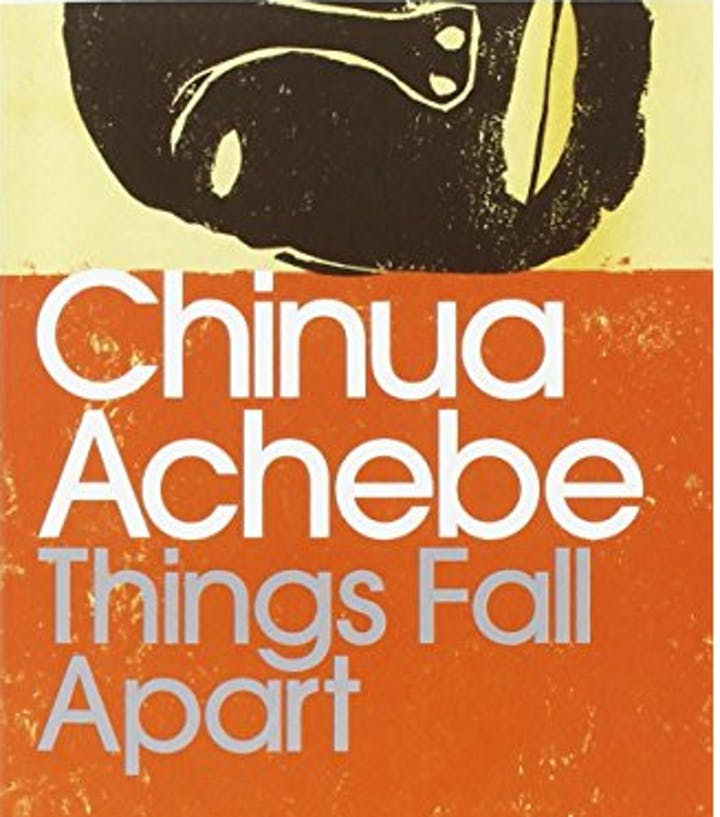
“The Commissioner went away, taking three or four of the soldiers with him. In the many years in which he had toiled to bring civilization to different parts of Africa he had learned a number of things. One of them was that a District Commissioner must never attend to such undignified details s cutting a hanged man from a tree. Such attention would give the natives a poor opinion of him. In the book which he planned to write he would stress that point. As he walked back to the court he thought about that book. Every day brought him some new material. The story of the man who had killed a messenger and hanged himself would make interesting reading. One could almost write a whole chapter ob him. Perhaps not a whole chapter but a reasonable paragraph, at any rate. There was so much else to include, and one must be firm in cutting details. He had already chosen the title of the book, after much thought: The Pacification of the Primitive Tribes of the Lower Niger.”
One of the greatest novels to come out of Africa, Things Fall Apart is a novel of memory and loss, it is a novel of beauty and tragedy and finally, a novel of pure aggression. Not aggression through language like Larsson's novel, but the aggression of wanting to do something that you can do absolutely nothing about. An aggression that stems from knowing that you are powerless against these forces that seek to take your freedom. The regression that takes place through quotation from the world of the constant war and violence to the tribal aspects makes the novel even more of a powerful statement out of Africa. It should be essential reading for all.
4. Frankenstein in Baghdad by Ahmed Saadawi (Iraq)
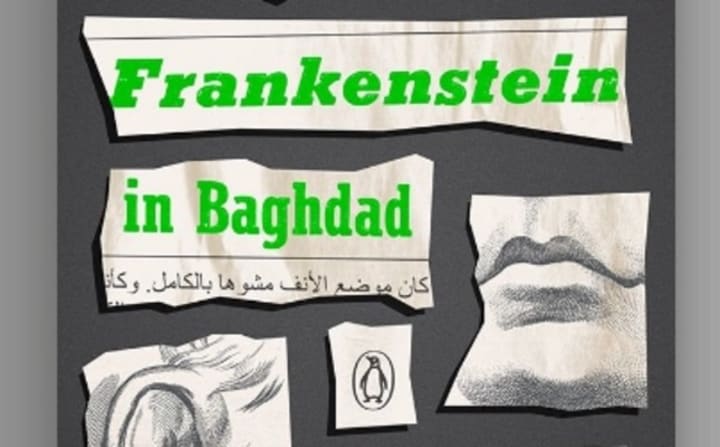
“They all dreamed something about Hasib. Parts of one dream made up for parts missing in another. A little dream filled a gap in a big one, and the threads stitched together to re-create a dream body for Hasib, to go with his soul, which was still hovering over all their heads and seeking the rest it could not find. Where was the body to which it should return in order to take its place among those who live in a state of limbo?”
One of the greatest modern novels I've ever read, this novel requires you to read it a few times before you really get it. I think that if you have only read it once, then you haven't really experienced everything the novel has to offer. My favourite thing about the language is the difference between the humane and the inhumane—the fine line is sort of blurred and through this, it is really up to the reader to decide what is right and what is wrong. It is such a brilliant and clever novel and I think it is written beautifully.
3. A Thousand Splendid Suns by Khaled Hosseini (Afghanistan)
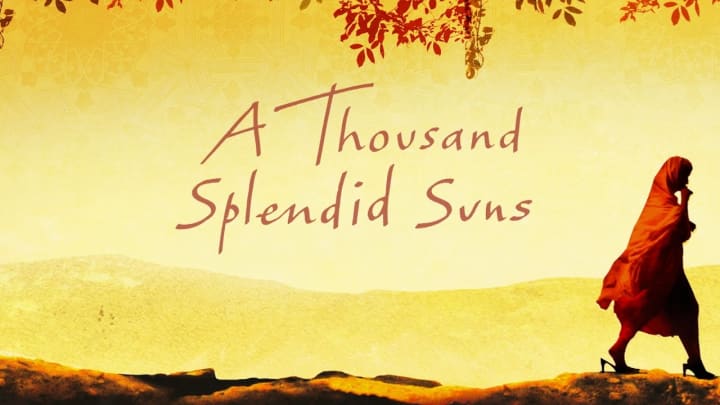
“Laila watches Mariam glue strands of yarn onto her doll's head. In a few years, this little girl will be a woman who will make small demands on life, who will never burden others, who will never let on that she too had sorrows, disappointments, dreams that have been ridiculed. A woman who will be like a rock in a riverbed, enduring without complaint, her grace not sullied but shaped by the turbulence that washes over her. Already Laila sees something behind this young girl's eyes, something deep in her core, that neither Rasheed nor the Taliban will be able to break. Something as hard and unyielding as a block of limestone. Something that, in the end, will be her undoing and Laila's salvation. The little girl looks up. Puts the doll down. Smiles.”
Not just one of the greatest Afghani novels ever written but this is possibly our own time's answer to 100 Years of Solitude. It is one of the greatest novels of the last 50 years and is a great achievement of literature, history and of culture. The novel's beautiful expression of Miriam's life in the most tragic of ways is almost Shakespearean in its depiction. The imagery of life, death, love and violence pushes the events of the novel forward against the backdrop of the Afghani Wars. I read it some years ago now and yet, it is not forgotten in any way whatsoever. You cannot forget it.
2. Reading Lolita in Tehran by Azar Nafisi (Iran)
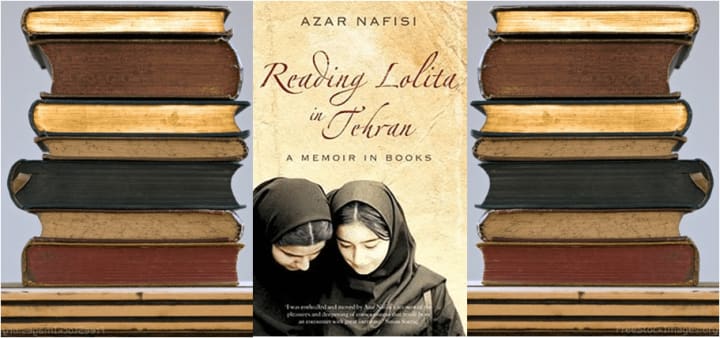
“It is also about loss, about the perishability of dreams once they are transformed into hard reality. It is the longing, its immateriality, that makes the dream pure.
What we in Iran had in common with Fitzgerald was this dream that became our obsession and took over our reality, this terrible, beautiful dream, impossible in its actualization, for which any amount of violence might be justified or forgiven. This was what we had in common, although we were not aware of it then.
Dreams, Mr Nyazi, are perfect ideals, complete in themselves. How can you impose them on a constantly changing, imperfect, incomplete reality? You would become a Humbert, destroying the object of your dream; or a Gatsby, destroying yourself.
When I left the class that day, I did not tell them what I myself was just beginning to discover: how similar our own fate was becoming to Gatsby's. He wanted to fulfill his dream by repeating the past, and in the end he discovered that the past was dead, the present a sham, and there was no future. Was this not similar to our revolution, which had come in the name of our collective past and had wrecked our lives in the name of a dream?”
I read this book whilst attending university and it was such an eye-opening experience. I loved this book and yet none of my friends (except the Afghani ones) had heard of the book. Again, it goes to show that even at university, there is not enough variety of books to read and that they keep teaching you the same books over and over again as if your life will be based on how good Pride and Prejudice is. Reading Lolita in Tehran has some of the most incredible language surrounding literature and is possibly one of the most beautiful books written in the last thirty years.
1. The Name of the Rose by Umberto Eco (Italy)
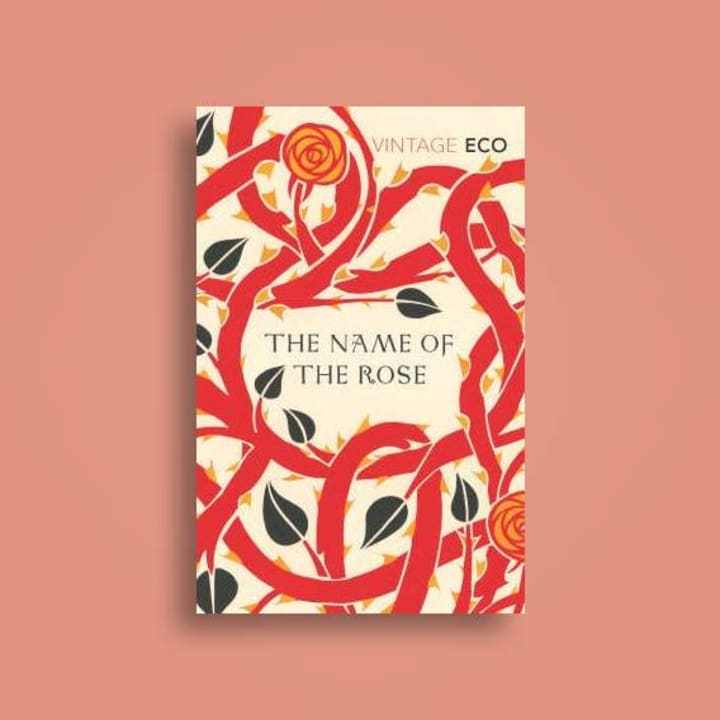
“Until then I had thought each book spoke of the things, human or divine, that lie outside books. Now I realized that not infrequently books speak of books: it is as if they spoke among themselves. In the light of this reflection, the library seemed all the more disturbing to me. It was then the place of a long, centuries-old murmuring, an imperceptible dialogue between one parchment and another, a living thing, a receptacle of powers not to be ruled by a human mind, a treasure of secrets emanated by many minds, surviving the death of those who had produced them or had been their conveyors.”
There is something incredibly endearing about The Name of the Rose and the fact that it has endured so long and so much criticisms has taught us about its credibility as a great novel. A mixture between the thriller and the historical novel, this book is a blend of amazing things and beautiful language. It is a Medieval delight in the best of ways and is placed within such an incredible atmosphere and raw, coarse and sometimes quite violent language. I loved reading this book and I'm sure you will too!
About the Creator
Annie Kapur
200K+ Reads on Vocal.
English Lecturer
🎓Literature & Writing (B.A)
🎓Film & Writing (M.A)
🎓Secondary English Education (PgDipEd) (QTS)
📍Birmingham, UK


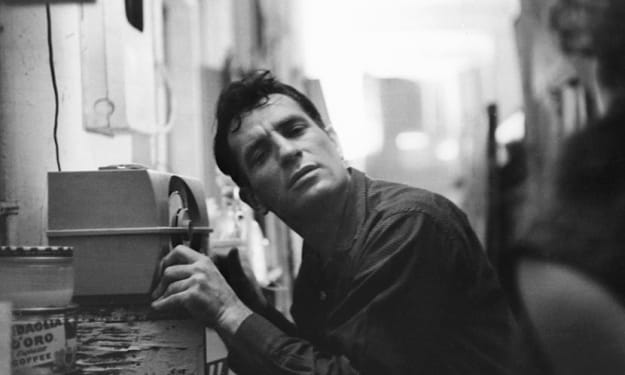



Comments
There are no comments for this story
Be the first to respond and start the conversation.